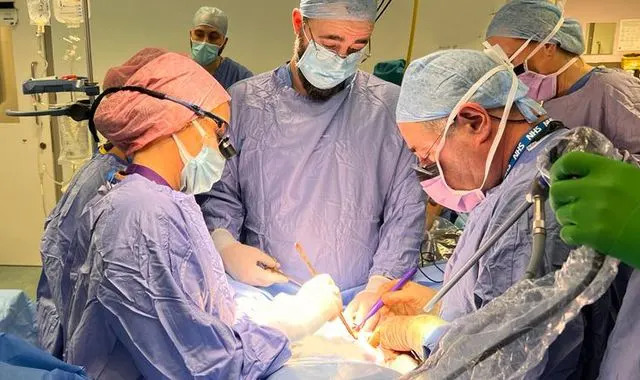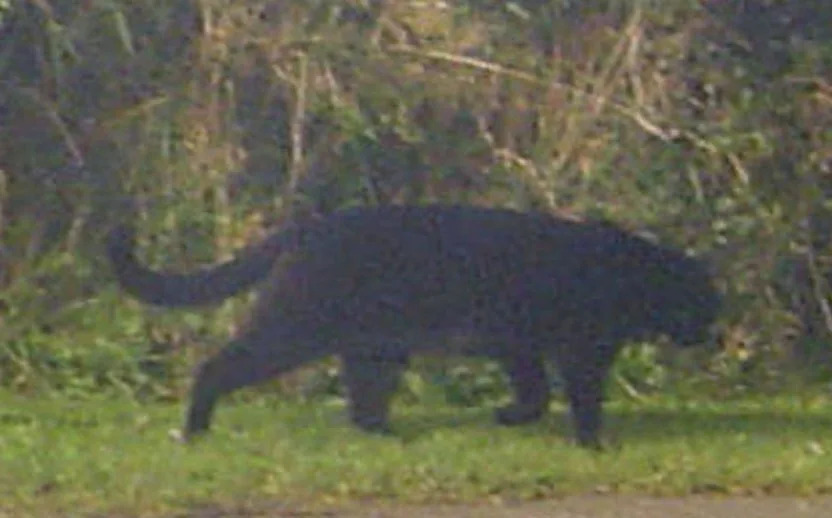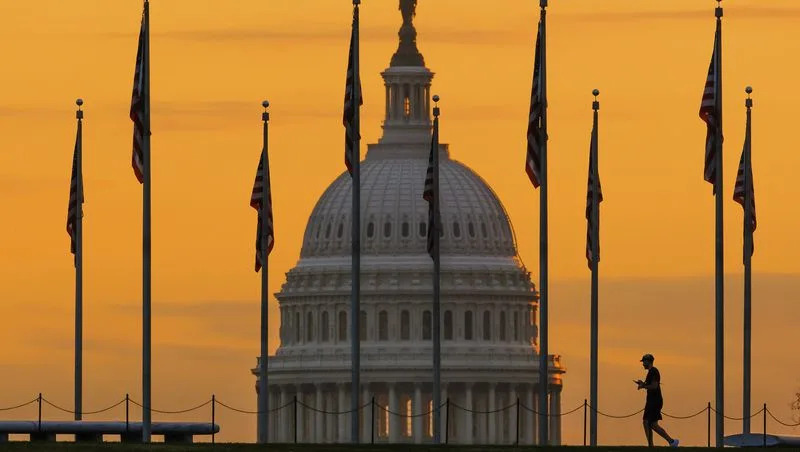Eleven people listed on first Rwanda flight staged hunger strike
Diane Taylor
Wed, 23 August 2023
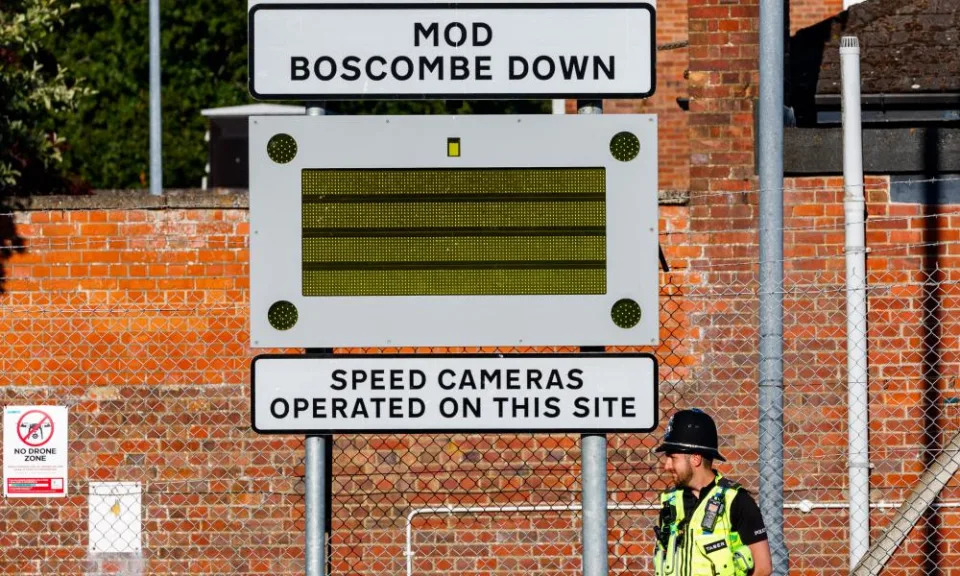
Photograph: Anadolu Agency/Getty Images
Eleven people earmarked for the first deportation flight to Rwanda staged a hunger strike to protest about their forced removal, according to a report from an independent watchdog. The annual report from the Independent Monitoring Board for Gatwick Immigration Removal Centre highlights grave concerns about how the Home Office managed the process of attempting to remove people to Rwanda, a controversial policy which the government says will deter small boat arrivals.
That first flight was cancelled shortly before it was due to take off from Boscombe Down Ministry of Defence site in Wiltshire after a last-minute intervention by the European court in June. The Court of Appeal found the Rwanda policy to be unlawful but government is due to appeal against that ruling in the supreme court in October. The report issues a series of warnings for government about its Rwanda policy.
“The board remains concerned that if this policy is fully implemented and men are detained prior to removal there is a high likelihood of real harm,” it states, adding that the process of removing people to Rwanda was “inadequate, resulting in unacceptable compromises to the men’s safety”.
One hundred people who were held in the Gatwick detention centre received notices of intent letters from the Home Office that there were plans to forcibly remove them to Rwanda.
It has been reported that 128 people received notices for the inaugural flight – 28 at Heathrow immigration removal centre and the rest at Gatwick. Just one person from the Gatwick centre was taken to the airport in preparation for removal. The report found that he suffered a severe panic attack.
A total of seven asylum seekers were taken to Boscombe Down for the aborted flight, six of whom were staying at the Heathrow immigration removal centre.
The report also raises concerns about the time removal directions were issued to those the Home Office hoped to remove to Rwanda. These removal directions were issued on 30 May, the queen’s jubilee weekend, when it was harder for people to access lawyers.
An earlier report from the IMB’s charter flight monitoring team published in June 2023 found that two of the seven people the Home Office tried to put on the flight to Rwanda were on constant observation due to their risk of suicide, with one put into a waist restraint belt.
Three of the seven were subjected to use of force. One person was not offered access to paramedics when he needed it. One man started praying on the airfield believing the plane would take off imminently while the report stated “two started to scream out their fear and distress, each trying to hurl his torso and head backwards and forwards”. Both were put into waist restraint belts.
A Home Office spokesperson said: “We take the wellbeing and safety of those in our care incredibly seriously and have dedicated welfare teams across all sites who can escalate any instances of mental health or illness.
“There are also robust safeguarding measures in place to ensure everyone within our care, including vulnerable people, is treated with dignity and has access to the support they need including legal advice while in detention.”
Bibby Stockholm asylum barge faces fresh legal challenge
Sky News
Updated Wed, 23 August 2023
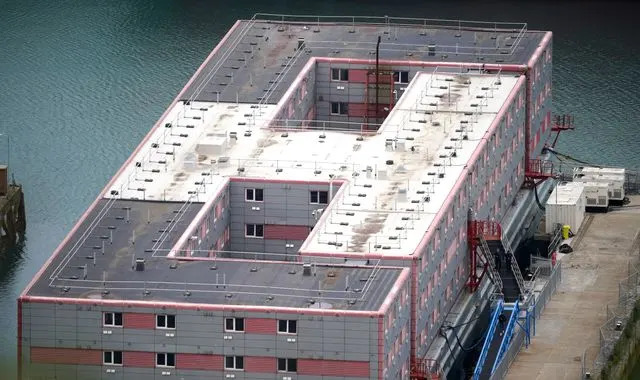
The Home Office is facing a legal challenge from a local mayor over whether it has the right planning permission to accommodate asylum seekers on the Bibby Stockholm barge.
The controversial vessel - docked in Portland, Dorset - saw its first residents board earlier this month. But within days, the men were moved off after a Legionella outbreak was detected in the water supply.
It is not yet clear when asylum seekers will return to the barge, with Rishi Sunak's official spokesperson refusing to put a timetable on it.
But the government's plan is now facing a new challenge with a battle in the courts.
Mayor of Portland and local councillor Carralyn Parkes "put the government on notice" that she intended to launch a legal challenge against Home Secretary Suella Braverman on 7 August - though she said she was acting in a "personal capacity as a private individual and local resident" rather than as a politician.
Writing on her crowdfunding website for the action, Ms Parkes said: "If you or I want to put up a porch at our home, we need to apply for planning permission. It's wrong that the Home Office does what it likes without complying with the same rules.
"If they'd applied for planning permission, they would have had to consult with local people - but we never got the right to have our say. I also believe that planning permission would have been refused."
Read more:
Man who lived on vessel calls it 'cramped' and 'claustrophobic'
Sunak still has 'confidence' in home secretary despite Legionella discovery
Asylum seekers should be moved back despite Legionella row, says health secretary
Ms Parkes lawyers, Deighton Pierce Glynn Solicitors, also claimed the Home Office had not got a marine licence for the vessel needed for some coastal developments, demanding the Marine Management Organisation (MMO) issued an enforcement notice against the barge until such a licence had been obtained.
And they attacked Dorset Council for "continuing to maintain that it has no power to enforce planning rules over the barge".
Ms Braverman's response to the legal action had been due on Monday, but the department told them it would now not arrive until late next week.
A statement from Ms Parkes lawyers said: "We urge the Home Office and Dorset Council to respond to our client's letters and confirm their position and reasoning for their decision-making.
"Transparency is a key tenet of good governance. Those affected by authorities' decision-making are entitled to know what decisions are being made and why."
A Home Office spokesperson said: "It would be inappropriate to comment on ongoing legal proceedings."
This horror story visited on South Wales by Suella Braverman could be coming to a street near you
Aditya Chakrabortty
Wed, 23 August 2023
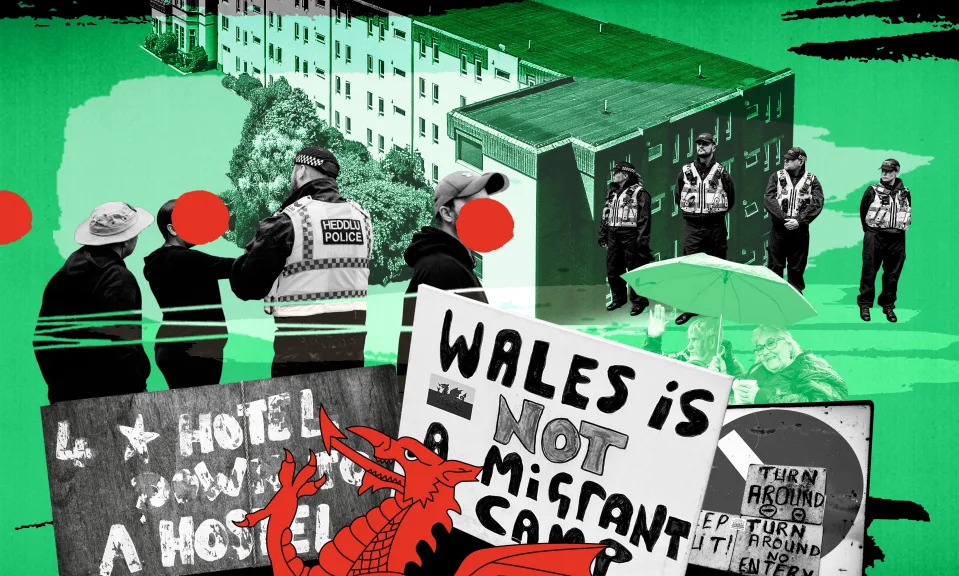
Take what follows as a little local horror story, if that makes you feel better. But I see it as a parable, a lesson in how toxic things can get when some of the basest ingredients in politics are blended just so and left to fester. Our setting today is a town a few miles outside Swansea, yet with only a few changes it could come to the end of your road.
“I was always proud to say I was from Llanelli. Now? It’s worse than embarrassed. I’m ashamed.” That’s not a disgruntled neighbour speaking, but the leader of Llanelli’s council. And what’s upsetting David Darkin isn’t some new eyesore, but the forces gathering on his streets. In the privacy of his office, he likens what’s outside to the 20th century’s darkest decade.
Just a few months ago, no one here would summon up the ghost of 1930s fascism. But that was before this spring, when the town’s top hotel was taken over by the Home Office to house about 250 asylum seekers – and all hell broke loose.
The Stradey Park Hotel is described by local people as “the jewel in Llanelli’s crown”, the place where everyone wanted to hold their weddings. Even today, as workmen pull out the building’s innards in preparation for its new role, it leaves a splendid shell: a cream-coloured Edwardian mansion tucked into a hillside, with views over the Gower coastline.
Now it is in the hands of Suella Braverman. However hard the home secretary huffs and puffs about cutting hotel bills for asylum seekers, she is now one of the biggest hoteliers in Britain. To house a huge backlog manufactured by the Tories, Braverman has just shy of 400 hotels, creating a chain more than twice the size of the Hilton group in the UK.
What costs taxpayers billions is making some people extremely rich. Stradey Park was sold in 2020 to Sterling Woodrow, an investment firm based about 250 miles away in Billericay, Essex, which also trades in hotels for refugees, first in Cumbria and now here. It struck a deal with Clearsprings Ready Homes, one of just three firms that handles all the Home Office’s asylum seeker accommodation. The founder of Clearsprings is Graham King. In 2022, the company reported profits of £28m, six times more than the year before.
Stradey Park should have received its new residents at the start of July, but local resistance put a stop to that. The opposition began with court cases and letters to Whitehall from the town’s great and good, but over the past 12 weeks it has metastasised. A permanent protest camp has sprung up right at the hotel gates, and what it has become leaves the town’s elected representatives baffled and fearful.
What began as complaints about the loss of a four-star hotel and 100 jobs is now a swamp of conspiracies about invaders and foreign rapists. A leaflet recently given out around the town asks: “Is it racist to protect your home from unknown unvetted illegals?” Last week, some of the people at the camp stormed the hotel. One leader of the original protest, Robert Lloyd, is now hounded outside his home for not being hardline enough. He says that friends whose weddings he attended now threaten him, and the night before we met last week, the police were doing hourly patrols outside his house.
Every jobbing demagogue is now making a beeline for south Wales. Katy Hopkins and Richard Tice have done selfie stops, while GB News and TalkTV have piled in. And this weekend, sad-sack fascist Anne Marie Waters addressed a capacity crowd, following on from the fascist organisation Patriotic Alternative, which has papered the town with its hate literature. At Hope Not Hate, Rosie Carter has spent years monitoring extremist organisations, but what she sees in Llanelli troubles her: “It’s far-right radicalisation in real time.”
A couple of hundred miles away in Westminster, “culture wars” is just another electoral sport, to be indulged for a couple of points in the polls or a mention in the papers. But in south Wales or Dunstable or Knowsley, you see what’s really at stake, where the mainstream and extremist right effectively collaborate in poisoning the very soil of a place so that supposedly subterranean prejudice voiced after last orders has become chest-out, finger-jabbing racism.
The Labour party in Llanelli, as elsewhere, has not reacted honourably. The most outspoken opponent of this bigotry has been the local Senedd Cymru member, Lee Waters. Among the abuse he has received as a result are direct threats to him and his family. Despite that, one county councillor turned up at the camp, posing in a camouflage jacket alongside a placard reading Welsh Lives Matter. No action has yet been taken against him, for all Labour’s protests of being an anti-racist party. Other Labour party representatives have been rather circumspect, perhaps out of a sense that their electoral base mustn’t have any prejudices challenged. By their silence, they are effectively allowing some of the basest rhetoric to be normalised.
One local antiracist activist, Steve Kelshaw, says: “Churches won’t say anything; the Labour party won’t say anything. All our usual sources of moral authority have gone.” That authority rested on an economic order, which has also dissolved. Llanelli steel production was once called a Klondike, so well did it pay, while down the road is what remains of Port Talbot, once called Treasure Island because no one could believe how good the wages were. All of that has gone now, with a town centre that in places is more boards than shops.
Almost everyone in Llanelli told me the camp was a no-go area, that a visit would mean intimidation or worse. But I didn’t think that would be fair, either to those protesting or to anyone reading this. So I went.
The hotel and its opponent camp sit on a narrow road out of town. There are protesters everywhere in front, watched over by police officers. When the residents move in, some from war zones of their own, it will become a fortress on a hill. From a balcony hangs a banner reading: “No illegal immigrants.” Fluttering elsewhere is military regalia: an RAF flag, a banner with a poppy and the legend “Lest we forget”. This sight was honked by a passing car at least every minute. Men and women came out of the tent to stare at me.
In the spring of 2016, when I came to south Wales before the Brexit vote, plenty of people told me how migrants were taking houses, hospital appointments, benefits. Mingled in with all that this time was something else: conspiracies. A man pulled out his phone and showed me a video of a white boy on his knees crying and kissing the feet of what he claimed were “Afghanistanis”. Where was this video from and when? He didn’t know. When white boys did the bullying wasn’t that also wrong? He didn’t appear to care.
In another conversation, a man fretted about not enough Welsh children being born. It was an echo of the chant from the far right in Charlottesville, Virginia, about white people being replaced. Out of the corner of my eye, a placard read: “We were never asked”. You might think it meant the conversion of the hotel, but the same phrase is plastered across the publications of the far right, to warn that immigration will dilute whiteness.
This back-and-forth went on for what felt like an hour, in the pouring rain of a Welsh summer. People would voice grievances, like housing and jobs, that could surely be solved with politics and money. And then they would lurch off into wild talk about how Albanians and Somalis have a propensity to gang-rape. It was a mix of the prosaic and the conspiratorial, as if your neighbour stopped talking about their lawn to whisper that lizards were moving in next door.
So much has been taken from this region over the decades – the anthracite coal, the tin and steel – but at least then local people got paid something for their troubles. This time, too, everyone wants to get their cut from Llanelli: the hotel owners, the outsourcing firm, the Home Office. Then there are the touring nationalists, popping over the border to pretend they care about Wales, while in Silicon Valley the social media firms whip up any tensions with their algorithims.
Back in Westminster, Braverman ponders how all this will play for her next leadership bid. Some day soon, all these people will move on to their next fairground. And the poor sods in this sometimes-beautiful town will have to decontaminate their very soil.
Aditya Chakrabortty is a Guardian columnist

